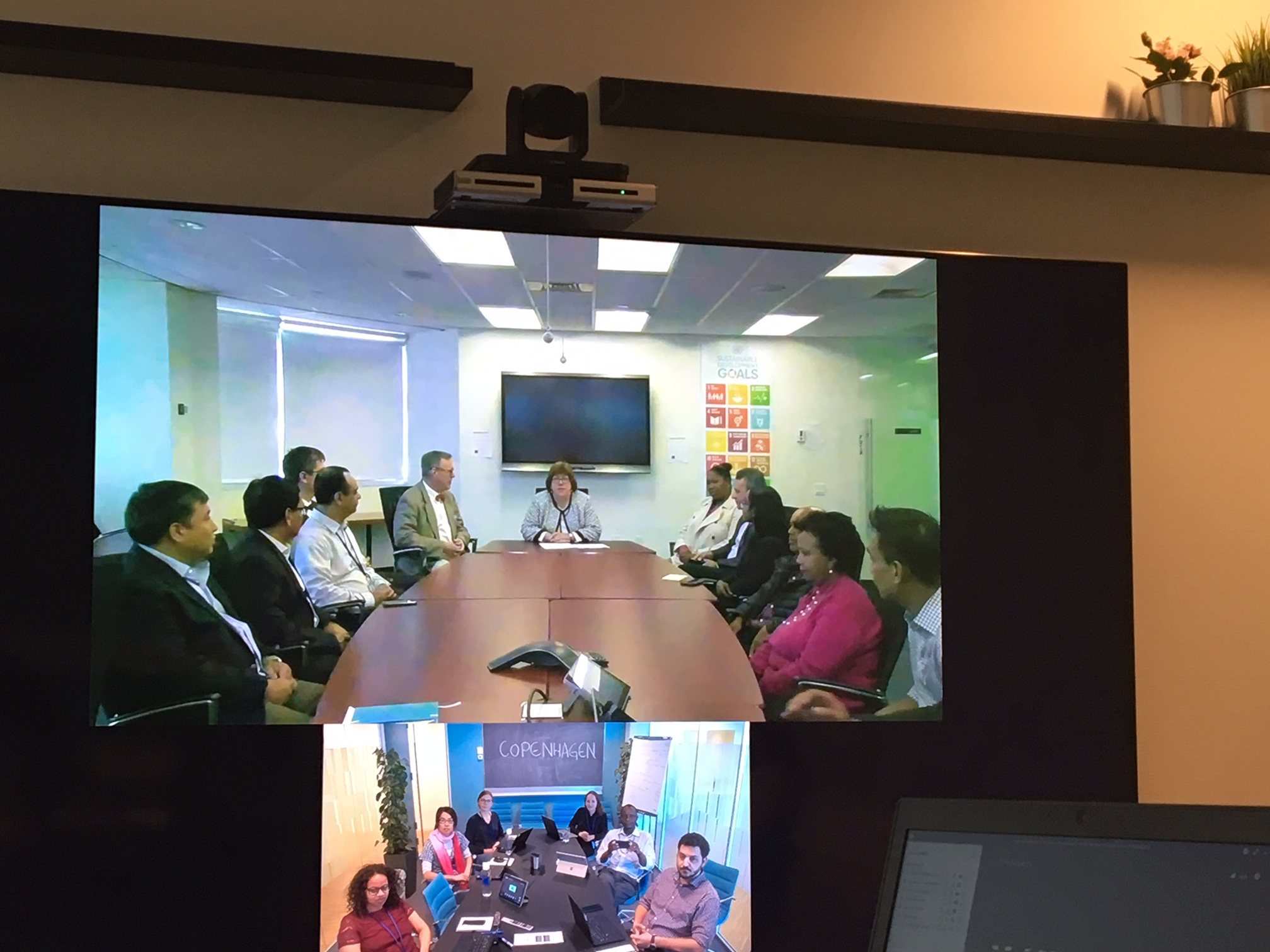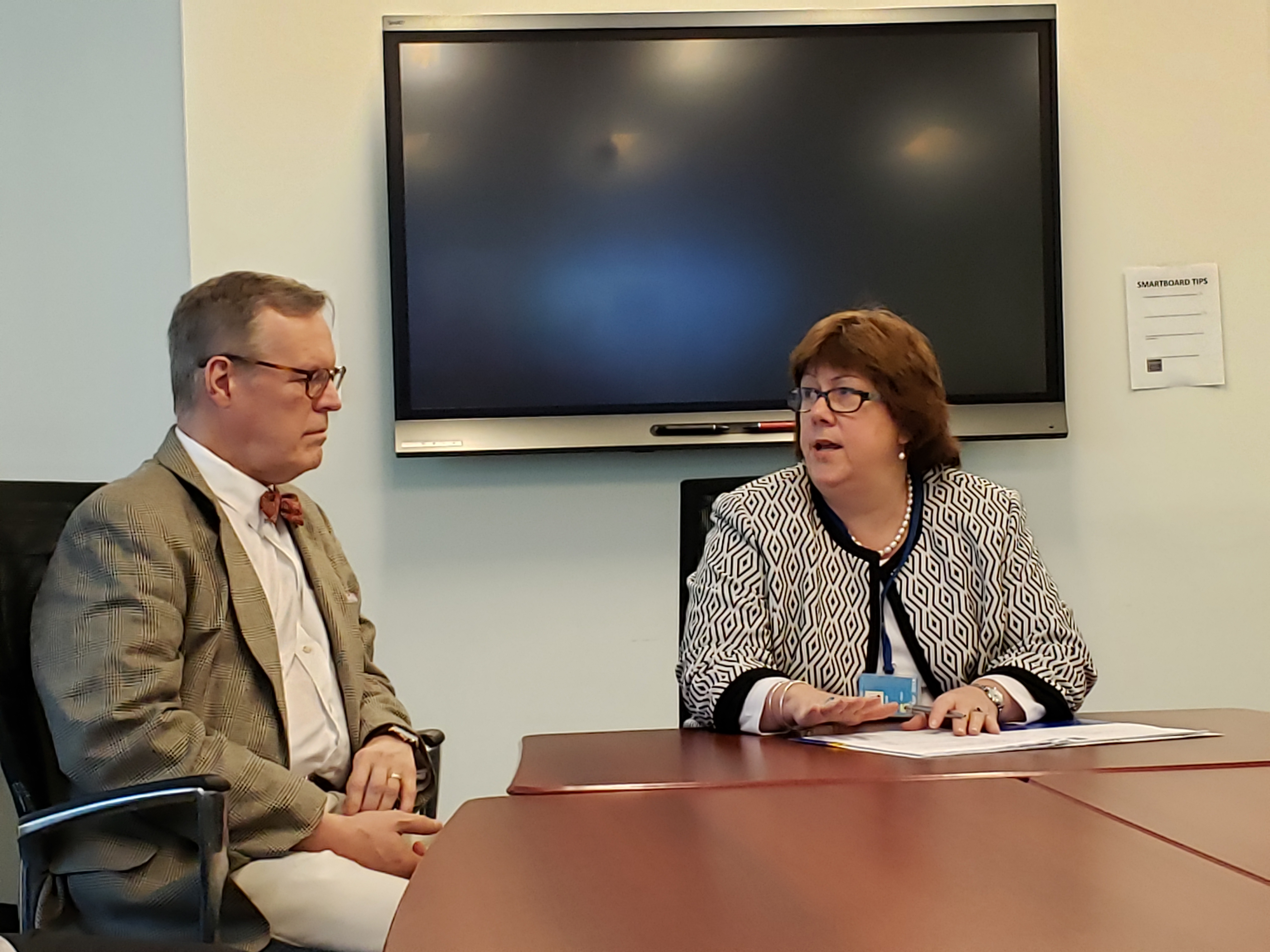The Assistant Administrator and Director of UNDP Susan McDade signing the pro-bono agreements
On 23rd April 2019, the signing ceremony for Vehicle-Grid-Integration (VGI) project in Namibia was successfully held at the UNDP Headquarter of New York Office. The Assistant Administrator and Director of UNDP, Ms. Susan McDade attended the ceremony and signed two pro-bono agreements with Nuvve and Nissan South Africa. The ceremony marked the formal commencement of the project after extensive preparation work has been done by all the concerned parties including BMS (Bureau of Management Services)/OIMT (Office of Information Management and Technology), UN House Namibia, and two private sector companies, Nissan and Nuvve.
Susan McDade has highlighted the importance of the project and the partnership between UNDP and the private sector: “This cooperation has everything moving in the direction that we want as UNDP, both on the substantive development agenda, on the operational robustness, and then also as a demonstration effective on how to work with the private sector to use a better, greener and cleaner technology.” she said.
Ms. Susan McDade at the signing ceremony
Nuvve, a Silicon Valley based start-up, has provided two bi-directional charging stations and system management software, along with the required expertise to install and test the system. Nissan South Africa is a car manufacturer, which has supplied two Nissan LEAF electric vehicles. These two external partners play an important role in launching the first UNDP VGI project, which has taken place in Namibia, possibly a precedent in Africa.
VGI project led by UNDP, as one of the milestones towards the adoption of green technologies at UN House Namibia, has showcased a combination of innovation and green energy solution, which helps Namibia move closer to sustainable future. Susan McDade has commented that in a continent such as Africa, “a lot of power infrastructure such as electrical grids and power systems has been built and designed to be able to take new technology opportunities on board”, which makes the VGI system a “leapfrogging technology” in a country like Namibia, “rather than going through the same technological steps that Europe, North America or Japan went through, to move to the front of the technological curve, this kind of transportation technology, using electricity instead of diesel fuel, is a way to take advantage of new energy infrastructure.” Electric Vehicles, as one of environmentally friendly alternatives, will help to build the capacity of green mobility in Namibia.
The two donated cars will be charged using solar energy connected to solar panels on the UN House roof. Namibia has great potential in renewable energy, specifically solar power, as it offers the energy security for selected circuits in times of blackouts. In the long run, it will potentially contribute to gaining energy efficiency, enhancing resilience to crisis situations, and raising technology awareness across the country. Depending on the final results after full assessment and review by UNDP, this project is likely to be a “game-changer”, not only for the UN but also for the continent.
UNDP OIMT has made strides in exploring innovative solutions for Country Offices. “Vehicle Grid Integration being probably the first in the African continent, will hopefully do what we are aiming to do, our vision to create Smart UN Facilities, not for the sake of having comfortable buildings for UN people but for the sake of building local capacity and providing a showcase to trigger movement”, said Gerald Demeules, Global ICT Adviser at UNDP OIMT Copenhagen-based team. This Pilot project will run for 12 months from date of commissioning (planned for Q2 or Q3 2019) with performance and benefits analysed to determine possibility of wider adoption in UNDP.

 Locations
Locations
